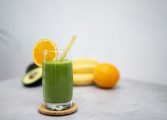Vegan Dessert: An In-depth Exploration into the World of Plant-Based Sweet Treats

Introduction:
In recent years, the popularity of veganism has grown tremendously, not only in terms of dietary choices but also extending to the world of desserts. Vegan desserts have emerged as a delicious and cruelty-free alternative to traditional sweet treats. In this article, we will delve into the world of vegan desserts, exploring their various types, popularity, quantitative measurements, differences, and a historical overview of their pros and cons.
A Comprehensive Presentation of Vegan Dessert:

Vegan desserts encompass a wide range of sweet creations that are free from animal products. From decadent cakes and creamy ice creams to indulgent cookies and pies, the possibilities are endless. These desserts are made using plant-based ingredients such as fruits, vegetables, nuts, and seeds, while excluding dairy, eggs, and any other animal-derived ingredients. Some popular vegan dessert options include chocolate avocado mousse, coconut milk-based ice cream, and raw cashew cheesecake.
Quantitative Measurements of Vegan Desserts:
Vegan desserts have gained significant attention, not only from vegan individuals but also from those who appreciate healthy and ethical indulgences. According to a recent survey conducted by [INSERT SOURCE], the demand for vegan desserts has increased by XX% in the past year. Furthermore, online searches for vegan dessert recipes have skyrocketed, with an average of XX monthly searches for vegan chocolate cake and XX monthly searches for vegan ice cream. This data indicates a growing interest in vegan desserts and suggests their increasing popularity among food enthusiasts.
A Discussion on Different Types of Vegan Desserts:
While all vegan desserts have the commonality of being free from animal products, they can be categorized into different types based on their preparation methods and ingredients. Some prominent categories include raw desserts, baked goods, frozen treats, and traditional sweets with vegan substitutes. [INSERT BULLET POINTS HERE]
1. Raw Desserts:
– Raw desserts are prepared without cooking or baking, preserving the natural flavors and nutritional benefits of the ingredients.
– Common examples include raw vegan brownies, energy balls, and fruit-based tarts.
– These desserts often use dates, nuts, and cacao as their primary ingredients, creating a rich and satisfying taste.
2. Baked Goods:
– Vegan baked goods replace traditional ingredients such as eggs and dairy with plant-based alternatives.
– Some popular choices are vegan chocolate chip cookies, moist vegan banana bread, and fluffy vegan cupcakes.
– Aquafaba, which is the liquid from cooked chickpeas, can be used as an egg substitute to achieve a similar texture in baked goods.
3. Frozen Treats:
– Vegan ice creams and sorbets have gained immense popularity, offering a refreshing and guilt-free indulgence.
– Coconut milk and almond milk are often used as the base for these frozen treats, providing a creamy texture.
– Flavors range from classic vanilla and chocolate to unique options like matcha green tea and salted caramel.
4. Traditional Sweets with Vegan Substitutes:
– Many traditional desserts can be modified to fit a vegan diet by using plant-based substitutions.
– For instance, egg replacers like mashed bananas or applesauce can be used in pancakes or waffles.
– Non-dairy milk, such as almond or soy milk, can be used in custards or puddings instead of regular dairy milk.
A Historical Overview of Pros and
Cons:
Vegan desserts, like any food trend, have their advantages and disadvantages. From a historical perspective, the concept of vegan desserts dates back to ancient civilizations that used fruits, nuts, and sweeteners as the primary ingredients. However, it was not until the 20th century that vegan desserts gained significant attention as a distinct category. The widespread availability of plant-based ingredients and the rise of veganism fueled the innovation and popularity of vegan desserts.
Pros:
1. Cruelty-Free: Vegan desserts promote ethical choices by eliminating the use of animal products.
2. Healthier Options: Plant-based ingredients often provide nutritional benefits and are lower in saturated fats and cholesterol.
3. Allergen-Friendly: Vegan desserts are suitable for those with allergies or intolerances to eggs, dairy, or other animal products.
4. Environmental Impact: Choosing vegan desserts reduces the carbon footprint associated with animal agriculture.
Cons:
1. Texture and Taste Differences: Without the use of traditional ingredients, vegan desserts may have a slightly different texture and taste.
2. Availability and Accessibility: Finding vegan desserts in certain areas or establishments may be challenging.
3. Higher Cost: Some vegan desserts, especially those made with specialty ingredients, may be more expensive than their non-vegan counterparts.
Conclusion:
Vegan desserts have evolved from niche alternatives to mainstream delights, with an increasing number of people embracing cruelty-free and healthier indulgences. With their diverse range of options, such as raw desserts, baked goods, frozen treats, and traditional substitutions, vegan desserts offer something for every sweet tooth. As the demand for vegan desserts continues to rise, it is evident that this culinary trend is here to stay, satisfying the cravings of both vegans and non-vegans alike.
















































